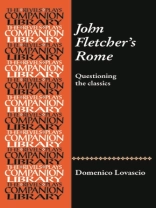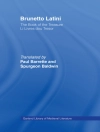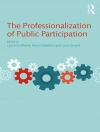John Fletcher’s Rome is the first book to explore John Fletcher’s engagement with classical antiquity. Like Shakespeare and Jonson, Fletcher wrote, alone or in collaboration, a number of Roman plays: Bonduca, Valentinian, The False One and The Prophetess. Unlike Shakespeare’s or Jonson’s, however, Fletcher’s Roman plays have seldom been the subject of critical discussion.
Domenico Lovascio’s ground-breaking study examines these plays as a group for the first time, thus identifying disorientation as the unifying principle of Fletcher’s portrayal of imperial Rome. John Fletcher’s Rome argues that Fletcher’s dramatization of ancient Rome exudes a sense of detachment and scepticism as to the authority of Roman models resulting from his irreverent approach to the classics. The book sheds new light on Fletcher’s intellectual life, his vision of history, and the interconnections between these plays and the rest of his canon.
Tabela de Conteúdo
Introduction: The Roman plays in the Fletcher canon
1 ‘Take your Lily / And get your part ready’: Fletcher and the classics
2 ‘I am no Roman, / Nor what I am do I know’: Fletcher’s Roman plays as Trauerspiele
3 ‘Had Lucrece e’er been thought of but for Tarquin?’: The inadequacy of Roman female exempla
4 ‘To do thus / I learned of thee’: Shakespeare’s exemplary Roman plays
Conclusion: Questioning the classics
Bibliography
Index
Sobre o autor
Domenico Lovascio teaches English Literature at the University of Genoa in Italy












